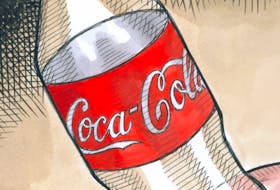When I get a cab, I like to make my point clearly as I get out.

“Fake driving,” I always snarl, because even though I don’t know the city and every single one of its side streets like the back of my hand, because I haven’t been driving for 12-hour shifts week in, week out for years on end, I could obviously do the job better, just like snapping my fingers. And I want to be sure the drivers know it.
When my doctor writes me a prescription, I like to look at the uneven scratchy penmanship, the dosages I can barely make out, and mutter “fake medicine” as I head out of the overfilled office and down the steep stairs with the stained brown carpeting — though sometimes I save that for the pharmacist instead.
Or sometimes both of them.
Who do they think they are? Who could possibly know the inside of my body better than I do? Fake experts.
When I get off a plane in some Canadian city, sometimes a member of the flight crew is right there in the door of the cockpit, and they always tell me they hope I have a great trip. (Probably because they are instructed to by head office. Fake camaraderie.) But once I’m on my way up the jetway, I always think back to whether or not the landing was a little rough, and whether I’ve seen better. “Fake jet-jockeys,” I say sharply, and it always makes me feel better — because that’s what’s important, that I feel important.
Yes, I make my point clearly and unequivocally, so all those faking fakers know full well that I see right straight through them. But I always do it afterwards. (Because, you know, I need my meds and my cab, and planes don’t fly themselves.)
I am, of course joking.
For several years, though, that kind of logic has become a force when it comes to talking about news coverage. If you don’t like what you read or what you hear, if you feel threatened or small because your electoral pick is suddenly looking like a doofus, the go-to phrase is “fake news.”
No other evidence required — all you have to do is read a story, do no other research, and make the pronouncement that someone’s work is worthless.
Does the media make mistakes? Yes. Absolutely we do. Sometimes, it’s because we are sloppy or tired, like anyone else. Sometimes, it’s because we jump the gun; the whole process now moves so quickly you barely have time to think about what you’ve just written — and those mistakes just serve to blight our reputation even more. (This is, however, one of the only businesses where every mistake you make can end up highlighted in tomorrow’s edition. Does that happen at your workplace much? Does a banner go on the front of the building saying, “Charles let the coffee run out. Again.”?)
If you don’t like what you read or what you hear, if you feel threatened or small because your electoral pick is suddenly looking like a doofus, the go-to phrase is “fake news.”
On the other hand, do journalists spend their days doing the best they can in a tough, time-constrained short-deadline-based business? Yes. They are experts in getting their jobs done. They may not be experts in software design or plant biology. But they work up questions, ask them, go through interviews and try to synthesize the clearest possible stories on a wide range of issues.
All I ask is that you stop and think about just what exactly you think is fake — oh, and on top of that, think about what particular evidence you have to back up your case.
I don’t mind being told I’m doing a bad job, that I’ve misread something or focused on the wrong part of an issue. But the drive-by sneer of “fake news”? I’m 32 years into this business, and I take it very seriously indeed.
I’ve got a small suggestion: instead of “fake news,” why not just say what you mean? Why not “I disagree,” or “I think you may have made a mistake,” or even “My unique worldview doesn’t accept the facts that you’ve carefully compiled, so I intend to disregard them as if they didn’t exist”? Then, we can have a discussion.
If your only answer is “fake news,” your part of the debate is really nothing more than, “Oh yeah?” or, “Well, your Dad’s fat.”
Fake news? How about, “Fake criticism”?
That’s not much fun to hear, either.
How about we find a different, and better way to disagree?
Russell Wangersky’s column appears in 39 SaltWire newspapers and websites in Atlantic Canada. He can be reached at [email protected] — Twitter: @wangersky.









